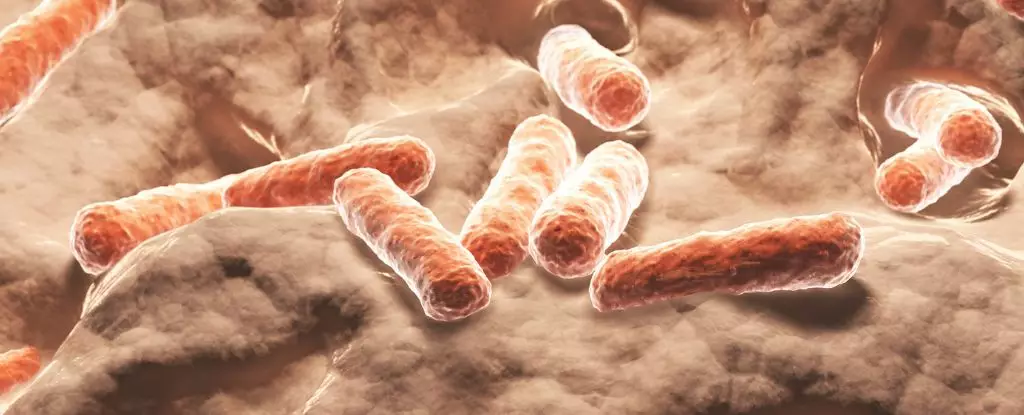Emerging research is shedding light on the intricate relationship between gut microbes and metabolic health, particularly in the context of blood sugar regulation. Scientists have identified a promising approach that may replicate the effects of existing pharmacological treatments, such as Ozempic, by leveraging the body’s natural mechanisms. By focusing on the gut microbiome—an ecosystem of trillions of microorganisms—in both mice and humans, researchers at Jiangnan University in China have established the potential for natural enhancement of glucagon-like peptide-1 (GLP-1) secretion. GLP-1 is a critical hormone involved in managing blood sugar levels and satiety.
The implications of this research are profound. Traditional treatments for type 2 diabetes often target hormonal pathways that can be artificially stimulated with medication. However, this novel strategy aims to tap into the body’s own processes, suggesting a shift towards more sustainable and holistic health interventions.
GLP-1 functions not only as a regulator of insulin secretion but also as a modulator of appetite. In addition to the pharmacological agents like semaglutide, which mimics GLP-1, understanding how to promote the body’s natural production of this hormone offers new avenues for treatment. The research indicates that certain gut microbes, particularly Bacteroides vulgatus, may be crucial in this process. By amplifying the presence of these beneficial microbes, researchers found a corresponding increase in GLP-1 secretion, suggesting that we may be able to steer our body’s metabolic responses through dietary and microbiome adjustments.
Crucially, the discovery of how gut flora communicates with hormonal pathways opens up exciting possibilities for developing proactive diabetes management strategies. This could shift the focus from reactive treatment to preventive care, utilizing the gut microbiome as a therapeutic target.
The study reveals an intricate interplay between gut bacteria and various hormones associated with sugar cravings and metabolism. Notably, the presence of specific gut proteins, such as Ffar4, proved critical in regulating the gut colony of B. vulgatus. When the production of this protein was hindered, the resulting drop in B. vulgatus levels was tied to decreased secretion of FGF21, a hormone closely associated with sugar cravings.
This presents a fascinating insight into the biological underpinnings of dietary preference. For individuals grappling with type 2 diabetes, the regulation of FGF21 holds significant implications, as a deficiency may lead to an increased desire for sugary foods, thus exacerbating their condition. By understanding these relationships, we may tailor dietary interventions to cultivate a healthier gut microbiome, which, in turn, could lead to more balanced blood sugar levels and reduced sugar cravings.
Compounding the complexity further are individual genetic variations that may influence how people respond to gut microbiota and hormonal signals. Studies show that individuals with certain genetic predispositions may be more inclined towards the consumption of sugar-laden foods. The research from Jiangnan University points to a specific correlation between Ffar4 mutations and heightened sugar preference, effectively illustrating that genetics play an essential role in our dietary inclinations and metabolic health.
This interplay between genetics and gut health emphasizes the need for personalized approaches to diabetes treatment and prevention. Rather than a one-size-fits-all methodology, healthcare professionals may need to consider an individual’s unique microbiome composition and genetic makeup to devise more effective and tailored interventions.
As science continues to unlock the mysteries of the gut microbiome, the insights gained from these findings could revolutionize how we approach diabetes management. With the potential to manipulate gut bacteria to enhance natural hormone production, future treatments may move beyond mere symptom management towards facilitating genuine metabolic healing.
Not only could this shift lead to reduced reliance on pharmaceuticals, but it could also promote overall wellbeing through more sustainable lifestyle choices. Integrating dietary strategies aimed at fostering beneficial gut flora may serve as a cornerstone in combating the global diabetes epidemic, offering hope and health for millions worldwide.
The burgeoning research into gut microbiota and its systemic effects on glucose regulation fundamentally changes our understanding of metabolic health and presents a compelling case for more natural, self-regulating methods of disease management.


Leave a Reply